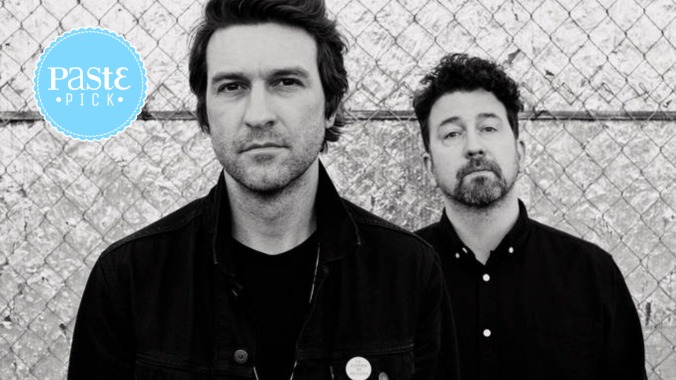Japandroids Wrap Up the Party with Fate & Alcohol
The Vancouver duo’s triumphant return is also their grand finale on what they say is their last album.

Every party eventually comes to an end. Japandroids are shutting it down on their own terms, before the beer is gone, before the cops come, before the bouncer has to throw everyone out into the street. It’s an about-face for Brian King and David Prowse, two guys who made the epicenter of the party into the core of their band. The duo started playing together as Japandroids in Vancouver in 2006, releasing three albums of stadium-sized indie-rock at ever-longer intervals before going quiet following a tour in 2018. Now, with King newly sober and about to become a parent, Japandroids are billing their fourth LP, Fate & Alcohol, as their last: The duo’s triumphant return is also their grand finale.
It’s grand indeed. Fate & Alcohol steps back from the more expansive palette of their 2017 album Near to the Wild Heart of Life to emphasize the core elements of Japandroids: clangorous guitars, pounding drums and shout-along vocals. That’s the sound that made the band’s 2012 release Celebration Rock into the musical equivalent of “Mardi Gras meets New Year’s Eve,” to borrow a line from “Alice” on their latest. It would perhaps overstate the case to say that Japandroids have arrived at some newfound maturity on these last 10 songs, but in some ways they’ve become more reflective.
-

-

-

-

-

-

-

-

-

-

-

-

-

-

-

-

-

-

-

-

-

-

-

-

-

-

-

-

-

-

-

-

-

-

-

-

-

-

-

-








































